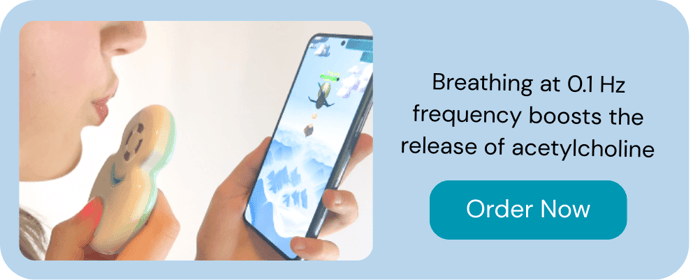Table of Contents
Mental health challenges disproportionately affect women, a disparity rooted in a complex interplay of biological, social, and psychological factors. Emerging research highlights a significant link between chronic inflammation and mental health conditions like depression and anxiety, which are more prevalent among women. Understanding these connections is crucial for developing effective interventions that address root causes, not just symptoms.
The Gender Disparity in Mental Health
Globally, women are nearly twice as likely as men to experience depression and anxiety disorders. In the United States alone, about 1 in 4 women will face a mental health issue in their lifetime. This difference isn’t due to a single factor but rather a mix of hormonal, environmental, and social variables (WHO, 2021).
Women’s mental health is strongly influenced by hormonal fluctuations. Estrogen and progesterone—key female hormones—are known to impact mood and brain chemistry. These fluctuations occur monthly (during menstruation), during pregnancy and postpartum periods, and again during menopause. For instance:
PMDD (Premenstrual Dysphoric Disorder) is a severe form of PMS that affects mental well-being, causing depression, irritability, and anxiety.
Postpartum depression impacts up to 15% of new mothers, a condition linked to sharp drops in reproductive hormones after birth.
Perimenopause and menopause can bring mood swings, anxiety, and sleep disturbances due to declining estrogen levels.
Add to that the societal expectation of women to “hold it all together”—juggling careers, caregiving roles, and domestic responsibilities—and it’s easy to understand why women often report feeling overwhelmed and emotionally depleted.
Chronic Inflammation: A Hidden Culprit in Mental Health
Recent scientific studies point to chronic inflammation as a major contributor to depression, anxiety, and brain fog. Unlike acute inflammation, which helps the body heal, chronic inflammation is a slow-burning internal fire—aggravated by stress, processed foods, poor sleep, and trauma.
When inflammation persists, it affects brain function and neurotransmitter balance. Elevated inflammatory markers like C-reactive protein (CRP) and interleukin-6 (IL-6) are frequently found in individuals with depression and anxiety.
What’s more concerning: studies show women may be more sensitive to the mood-altering effects of inflammation than men. A 2024 systematic review and meta-analysis published in Brain, Behavior, and Immunity found that elevated levels of CRP and IL-6 were significantly associated with depression in women but not in men. This research underscores the importance of considering sex differences in the inflammation-depression link, suggesting that women may be more susceptible to inflammation-related depressive symptoms.
The Vagus Nerve: Your Body’s Built-In Anti-Inflammatory Switch
Enter the vagus nerve—a long cranial nerve that acts as a communication superhighway between your brain and body. It plays a vital role in regulating heart rate, digestion, and even your immune response .
When the vagus nerve is active (i.e., when you have high vagal tone ), it promotes a state of rest and recovery. This includes releasing acetylcholine , a neurotransmitter that directly inhibits the production of pro-inflammatory cytokines —the very chemicals responsible for chronic inflammation and, by extension, many mental health issues.
Low vagal tone, on the other hand, has been associated with increased stress, poor emotional regulation, and vulnerability to anxiety and depression.
Breathwork: A Simple Yet Powerful Way to Activate the Vagus Nerve
One of the most effective and accessible ways to stimulate the vagus nerve is through breathwork. Unlike medication, breathwork has no side effects and can be done anywhere, anytime.
Certain techniques, such as slow diaphragmatic breathing, 0.1 Hz breathing (6 breaths per minute), or alternate nostril breathing , can trigger the parasympathetic (rest-and-digest) response. This not only calms the nervous system but also reduces inflammation at a cellular level .
A meta-analysis in Scientific Reports (2023) found that breathwork significantly improved stress, anxiety, and depressive symptoms, especially in women who practiced it consistently.
But Breathwork Isn’t Always Easy—That’s Where Seesaw Health Comes In
Despite its benefits, many women find it hard to stick to breathwork routines. Why? Because breathwork can feel boring, vague, or even overwhelming when you're already anxious.
This is exactly why Seesaw Health was created.
Seesaw Health turns breathwork into a 3-minute interactive game , guided by a smart biosensor that tracks your breathing in real-time. The device offers personalized pacing and real-time feedback to help you stay engaged and stimulate your vagus nerve effectively, without mind wandering or confusion.
You’re not left wondering “am I doing this right?”—you’re seeing your progress on-screen, and playing your way to calm.
Real Women. Real Relief.
Celine, the founder of Seesaw Health, shared her story: “I created Seesaw because I was tired of feeling at the mercy of my inflammation and anxiety. I wanted something that didn’t just promise results—but actually helped me feel better in real time. Breath-controlled games gave me that.”
Users like Anna, 34, agree:
“I’ve tried meditating, journaling, apps… nothing helped like this. Seesaw gave me a quick reset when my anxiety peaks—and knowing it’s science-backed makes me trust it even more.”
Bringing Science and Self-Care Together
At Seesaw Health, we believe that managing your mental health shouldn't require guesswork—or hours of meditation. With vagus nerve-stimulating breathwork, supported by real data, you're not just “coping.” You're actively changing your body’s inflammatory and emotional responses in just a few minutes a day.
Whether you're facing hormonal shifts, chronic conditions, or the weight of modern womanhood—this is a tool designed to meet you where you are, and help you heal.
What to Remember
The rise of mental health issues in women is no coincidence. From hormonal fluctuations and life stressors to the biological impact of chronic inflammation, the cards are often stacked against us. But science is catching up—and so are our solutions.
Seesaw Health offers a powerful way to reclaim mental clarity and emotional resilience, one breathwork at a time. With smart, accessible tools that tap into the vagus nerve’s healing power, women finally have a natural method that’s not only effective—but enjoyable and sustainable.
FAQs
Why do women experience more mental health challenges than men?
Women are more susceptible to anxiety, depression, and stress-related disorders due to a combination of hormonal fluctuations, nervous system sensitivity, and social factors. Hormones like estrogen and progesterone influence neurotransmitter systems, while heightened autonomic nervous system reactivity can increase stress vulnerability.
How do hormonal changes impact mental health in women?
Estrogen and progesterone modulate mood, cognition, and stress response. Fluctuations during the menstrual cycle, pregnancy, perimenopause, or menopause can affect serotonin and GABA signaling, which may contribute to anxiety, low mood, or emotional dysregulation.
What role does the nervous system play in women’s mental health?
The autonomic nervous system controls the balance between fight-or-flight (sympathetic) and rest-and-digest (parasympathetic) responses. Overactive sympathetic signaling or underactive parasympathetic regulation can increase stress, worsen mood disorders, and reduce resilience to mental health challenges.
Can breathwork or vagus nerve activation help?
Yes. Practices like slow, resonant breathing (~0.1 Hz) stimulate the vagus nerve, enhance parasympathetic tone, and reduce sympathetic overactivation. This helps calm the nervous system, improve emotional regulation, and support mental well-being in women.





